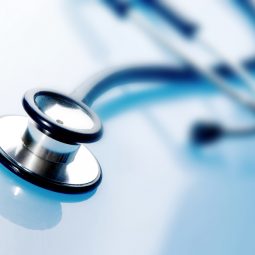Did you know that about 2,200 Americans die of cardiovascular disease each day? Heart disease, including coronary heart disease, hypertension and stroke, remains the No. 1 cause of death in the United States, according to the American Heart Association. Cardiovascular diseases claims more lives each year than all forms of cancer and chronic lower respiratory disease combined — one life every 40 seconds.
That’s why we’ll be participating in the American Heart Association Heart and Stroke Walk in Portland on June 2. This annual event helps raise awareness while promoting physical activity and encourages healthier lifestyle choices that can lead to more robust heart health.
What is cardiovascular disease?
The term cardiovascular disease covers a wide variety of heart and blood vessel problems, many of which trace back to a buildup of plaque in the arterial walls, called atherosclerosis. As the level of plaque increases, the walls of the arteries become narrower, making it more difficult for blood to move throughout the body. The risk of a blood clot or a full stoppage of blood flow increases significantly as the passageway narrows, often resulting in a stroke or heart attack.
Know the warning signs
Heart attacks and strokes are life-and-death emergencies. If you see or have any of the listed symptoms, call 911 immediately. Not all of these signs occur in every heart attack or stroke, and sometimes symptoms go away briefly only to return. Remember, every second counts. Today’s heart attack and stroke victims can benefit from new medications and protocols that were unavailable to patients in years past. However, to be effective, patients need these treatments soon after heart attack or stroke symptoms first appear.
Heart attack warning signs
- Chest discomfort — Most heart attacks involve discomfort in the center of the chest that lasts more than a few minutes, or that goes away and comes back. It can feel like uncomfortable pressure, squeezing, fullness or pain.
- Discomfort in other areas of the upper body — Symptoms can include pain or discomfort in one or both arms, the back, neck, jaw or stomach.
- Shortness of breath — With or without chest discomfort.
- Other signs — May include breaking out in a cold sweat, nausea or light-headedness.
Spot a stroke F.A.S.T.
- Face dropping — Does one side of the face droop or is it numb? Ask the person to smile.
- Arm weakness — Is one arm weak or numb? Ask the person to raise both arms. Does one arm drift downward?
- Speech difficulty — Is speech slurred, is the person unable to speak, or are they hard to understand? Ask the person to repeat a simple sentence like “The sky is blue.” Is the sentence repeated correctly?
- Time to call 9-1-1 — If the person shows any of these symptoms, even if the symptoms go away, call 9-1-1 and immediately get them to a hospital.
Get heart smart
Imagine the impact if we reduced death and disability from cardiovascular disease and stroke by 20 percent by 2020. Please help us reach this lifesaving goal by joining a team — you’re welcome to join The Portland Clinic team if you like — or by making a donation today. Together, we can raise awareness to help make healthier, longer lives possible. Thank you in advance for your support!
The Cardiovascular Team at The Portland Clinic includes a board-certified Cardiologist, along with registered nurses, certified medical assistants and cardiac and vascular ultrasound sonographers. Doctors and nurses at The Portland Clinic offer unsurpassed care for a full spectrum of cardiovascular conditions, including coronary artery disease, congestive heart failure, arrhythmias, valve disorders, congenital heart disease, hypertension, peripheral vascular disease, aortic disease, aneurysms and the use of pacemakers. If you or someone you know is concerned about their heart health, please call The Portland Clinic and schedule an appointment at 503-223-3113 or visit ThePortlandClinic.com. (Please note, doctors and nurses cannot provide medical advice to nonpatients.)


